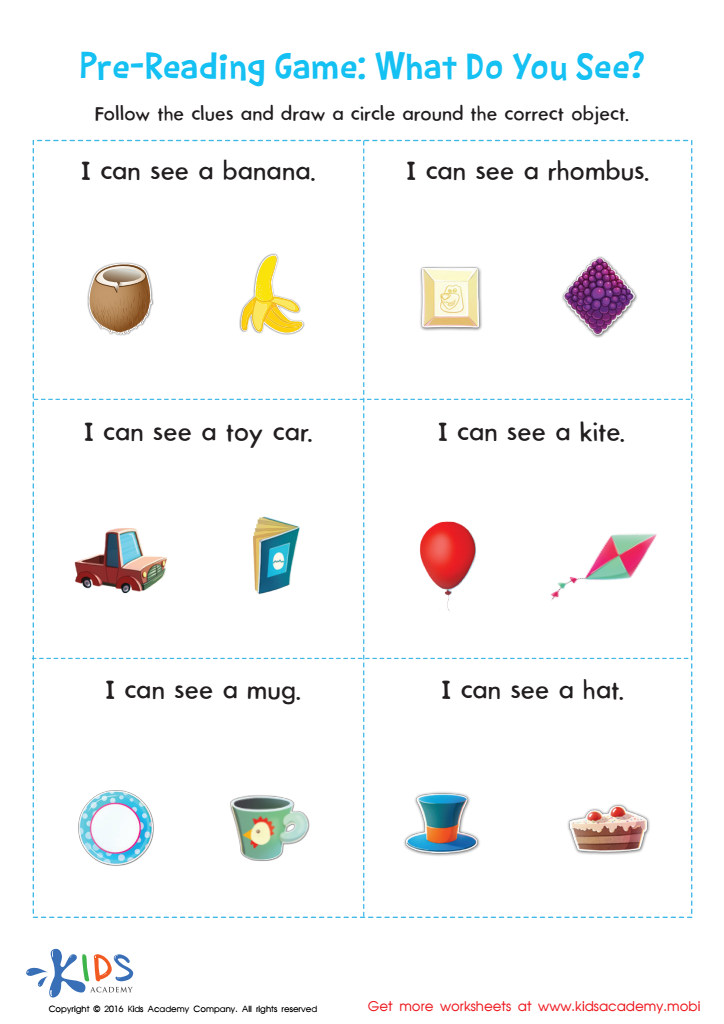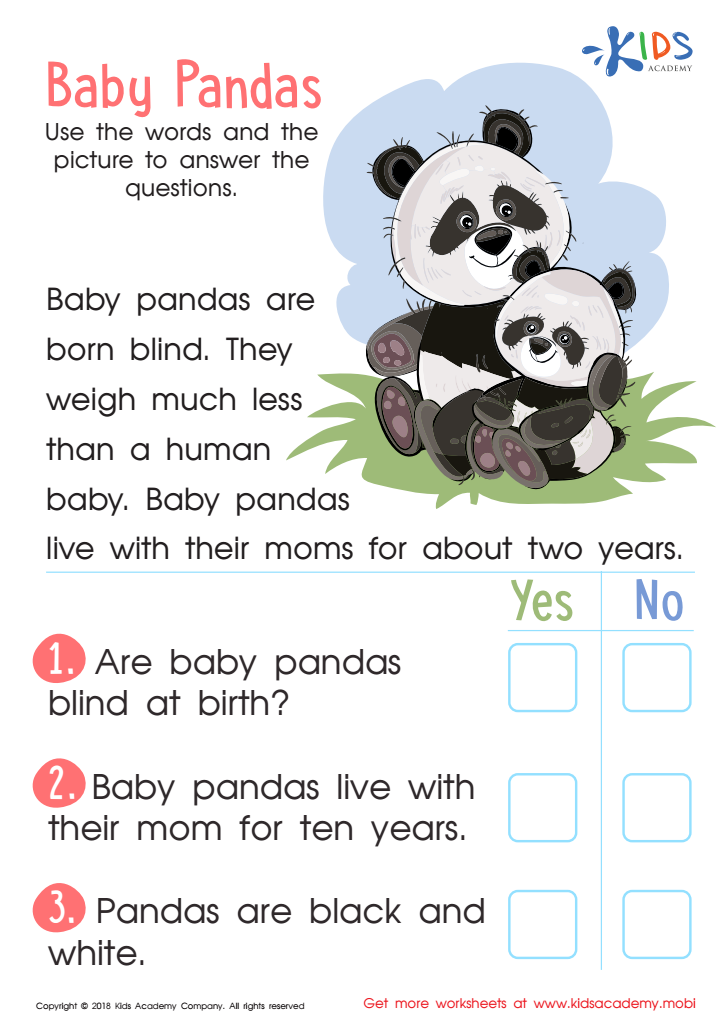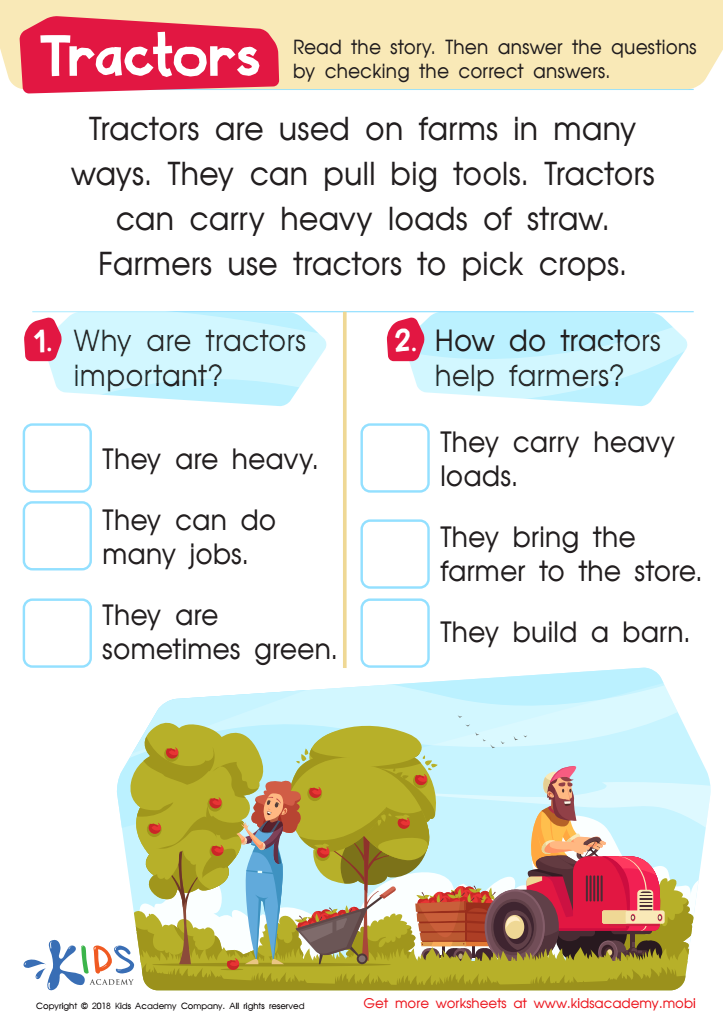Counting practice Reading Non-Fiction Worksheets for Ages 4-8
4 filtered results
-
From - To
Introduce your young learners to counting while enhancing their reading skills with our engaging Counting Practice Reading Non-Fiction Worksheets for ages 4-8! Designed to blend literacy with numeracy, these worksheets feature age-appropriate non-fiction texts that captivate and educate. Children will explore fascinating topics while practicing essential counting skills through fun activities. Each worksheet encourages curiosity and critical thinking, making learning enjoyable. Perfect for homeschooling, classroom settings, or supplementary learning at home, our resources foster a love for reading and math simultaneously. Download these worksheets today and watch your child thrive in both subjects while building confidence and knowledge!


Pre–reading Worksheet: What Do You See?


More Octopus Facts Worksheet


Baby Pandas Worksheet


Tractors Worksheet
Counting practice and reading non-fiction for children ages 4-8 are crucial for their cognitive development and understanding of the world. First, counting practice fosters essential math skills, which form the foundation for future learning in mathematics. Engaging in counting activities not only improves numeracy but also enhances skills like problem-solving and critical thinking. When children count objects or engage in games, they learn to recognize quantities and develop spatial awareness.
Incorporating non-fiction reading into their learning is equally significant. Non-fiction texts expose children to real-world concepts, facts, and diverse cultures, helping them build knowledge and literacy skills simultaneously. This genre encourages curiosity and a love for learning, as children discover the world around them through informative content on animals, technology, science, and more.
Moreover, non-fiction books often feature vivid illustrations and relatable narratives that hold children’s attention, making learning enjoyable. Both counting practice and non-fiction reading align with early literacy and numeracy standards, preparing children for academic success. When parents and teachers prioritize these activities, they nurture well-rounded, informed, and engaged learners who are ready to tackle challenges in school and beyond. Supporting these practices is investing in a child's future learning and development.
 Assign to My Students
Assign to My Students
















